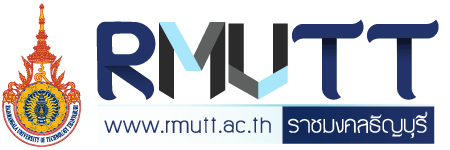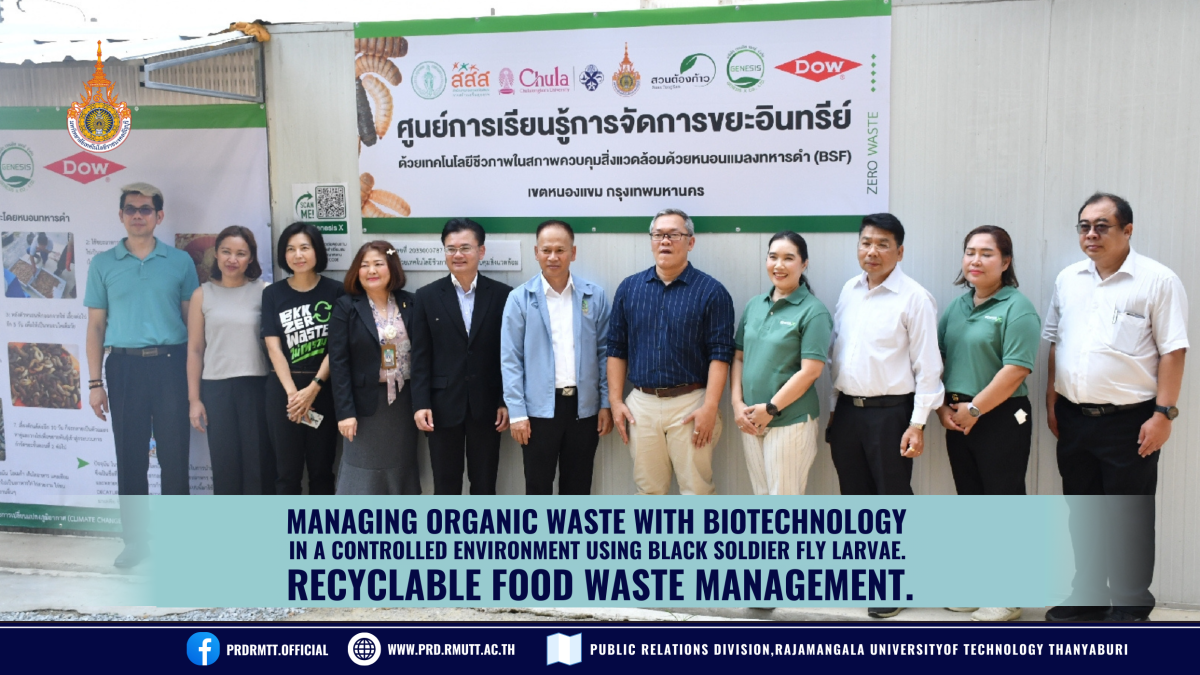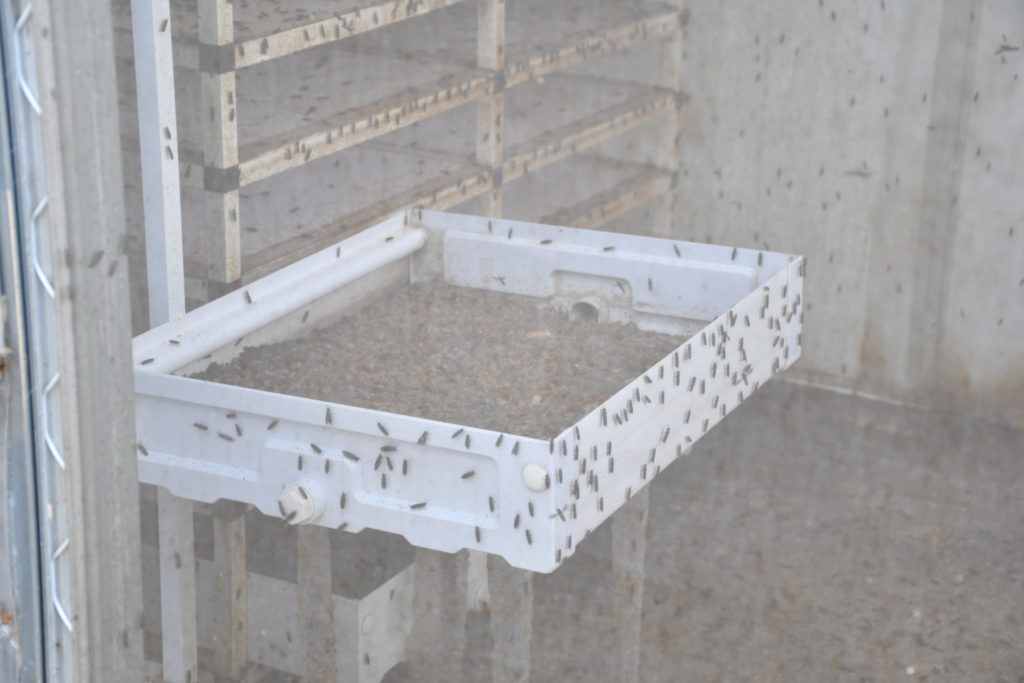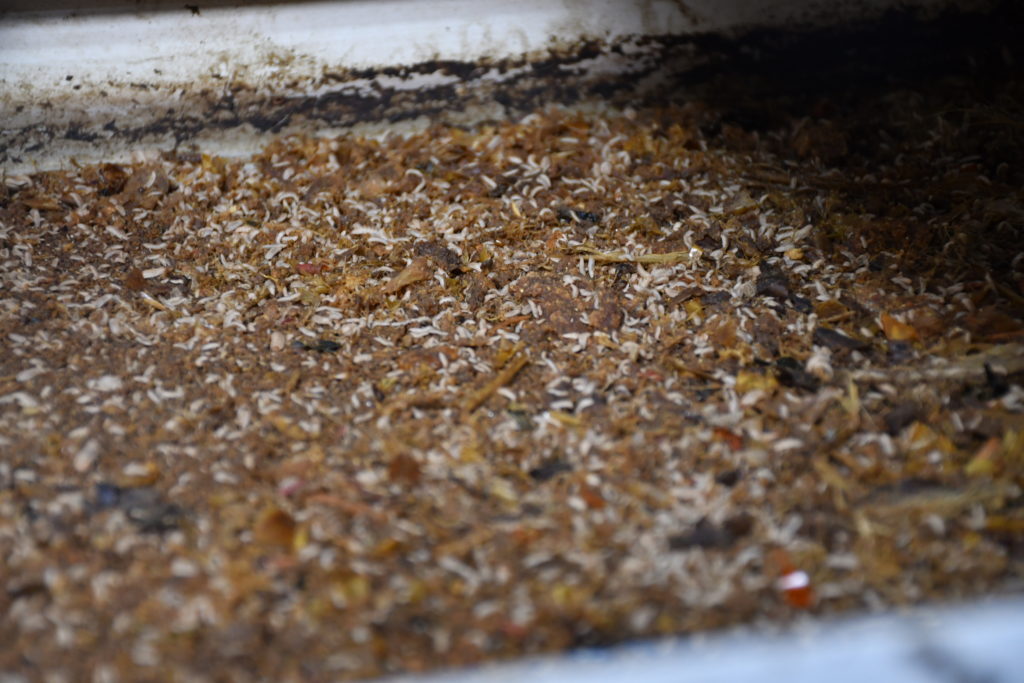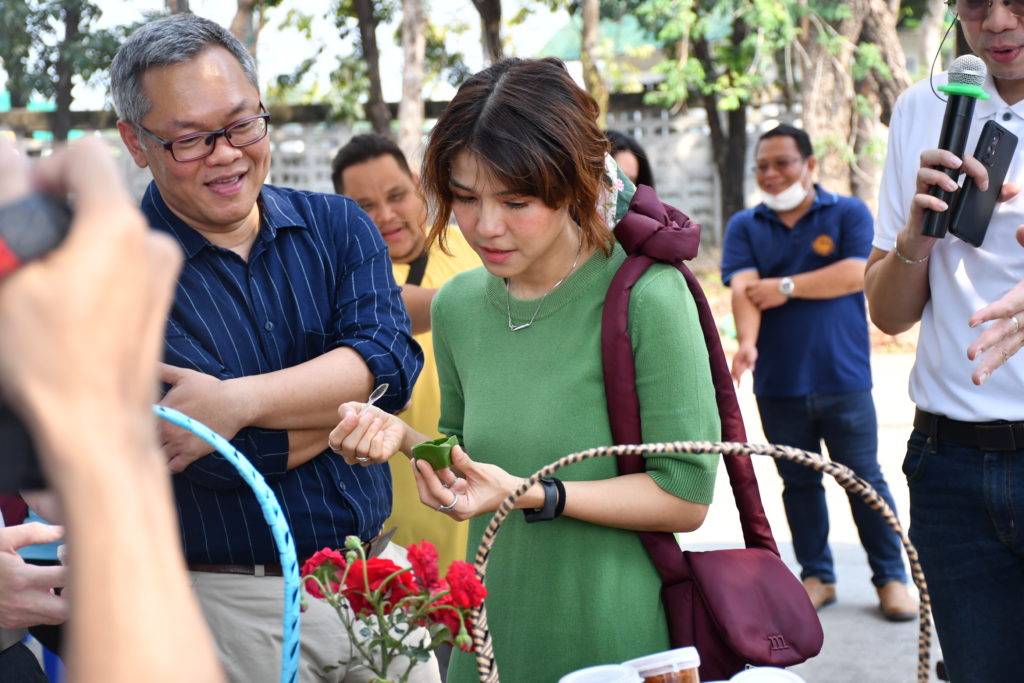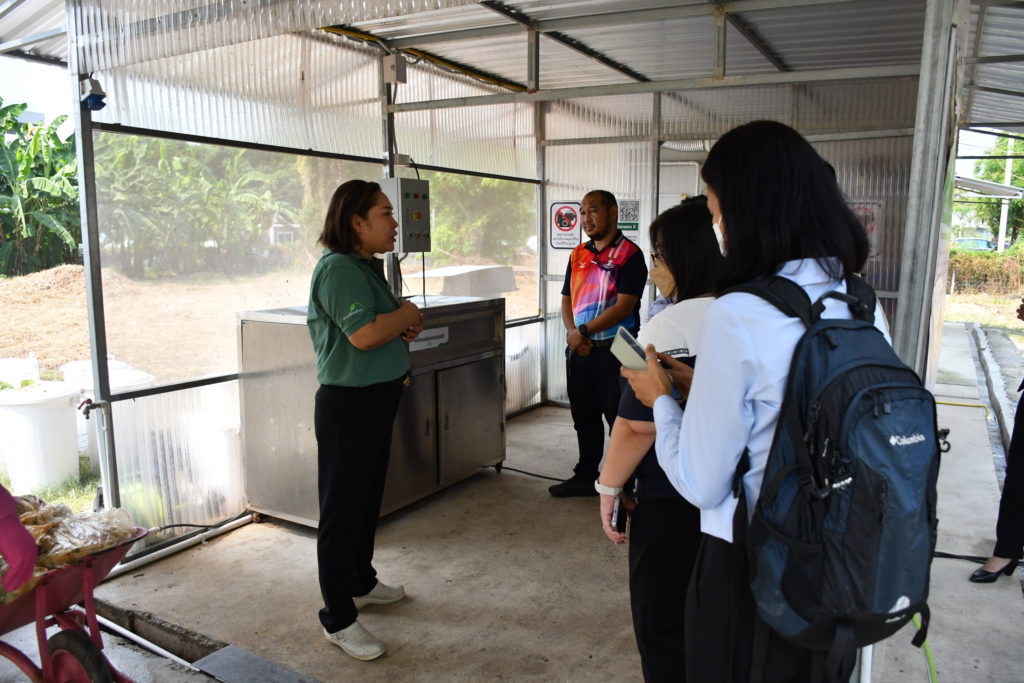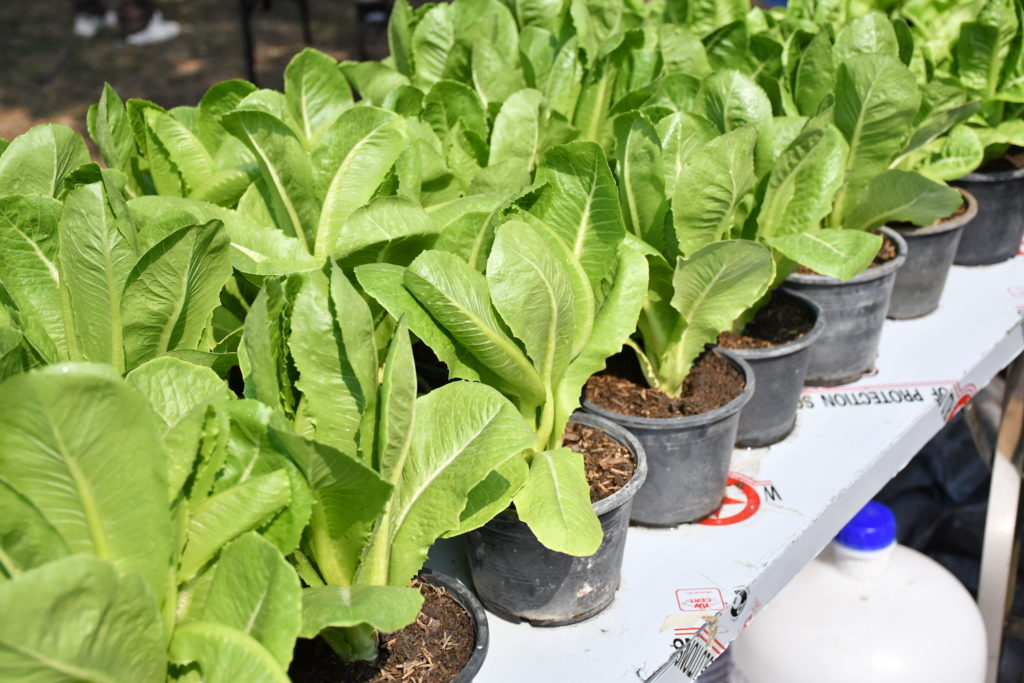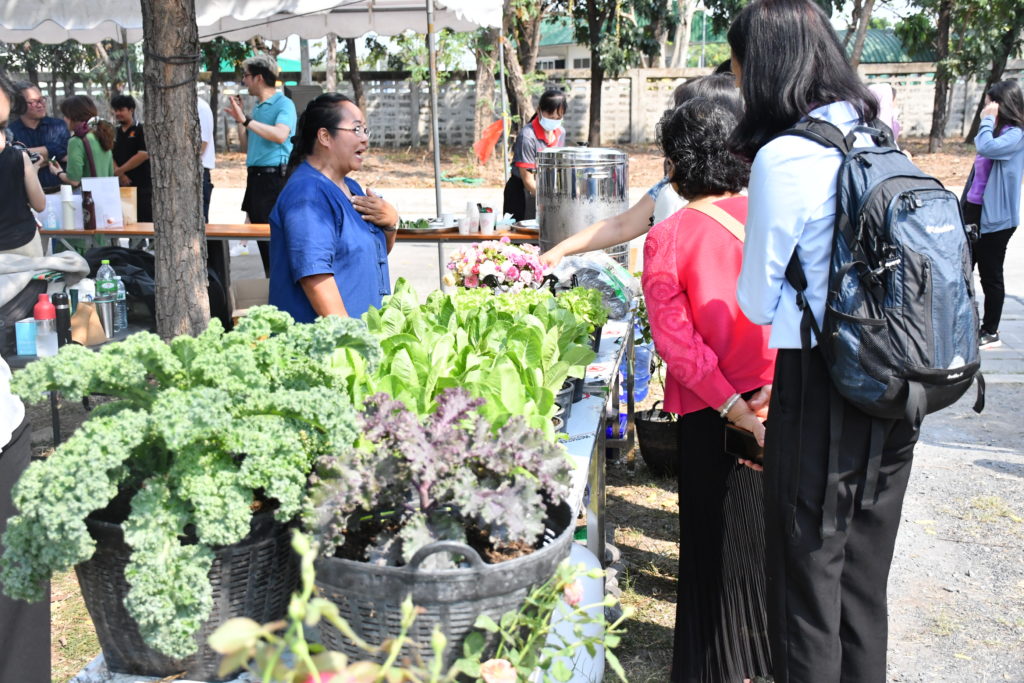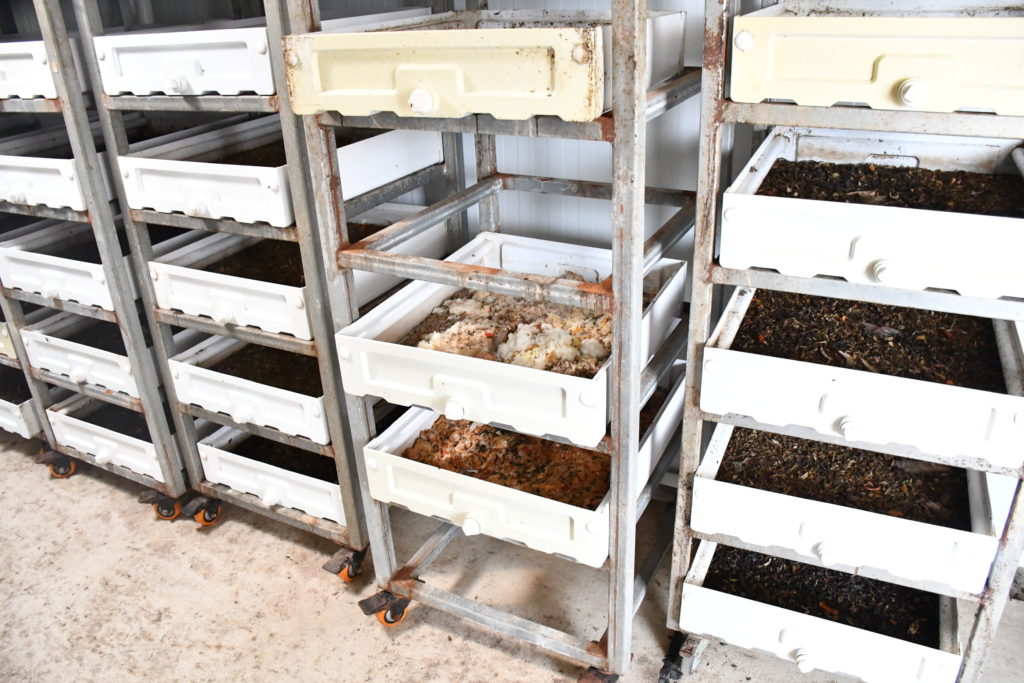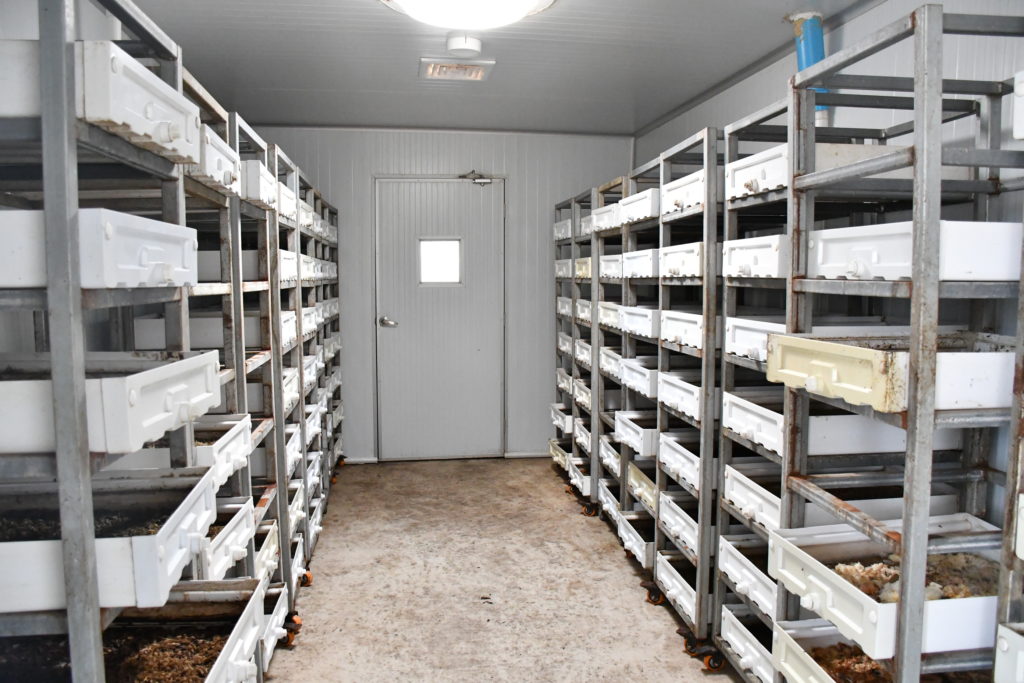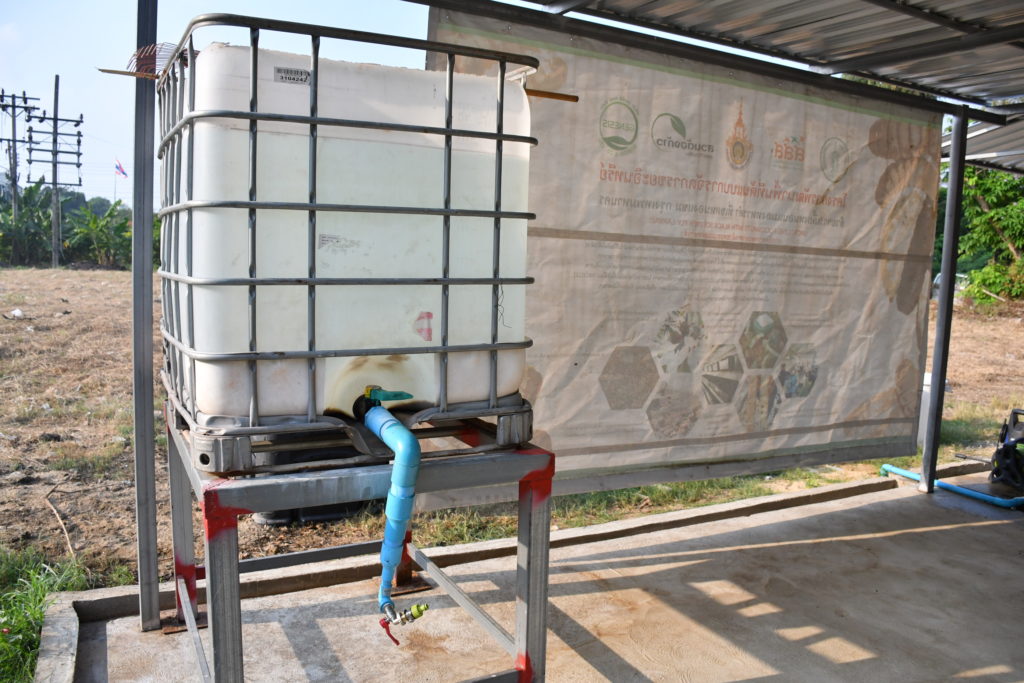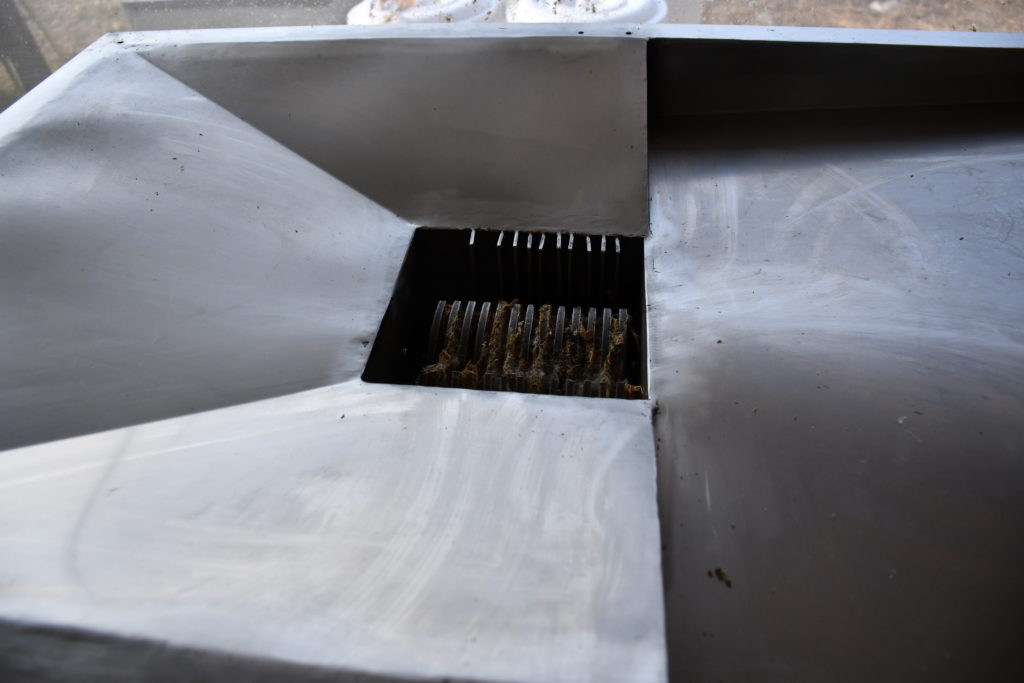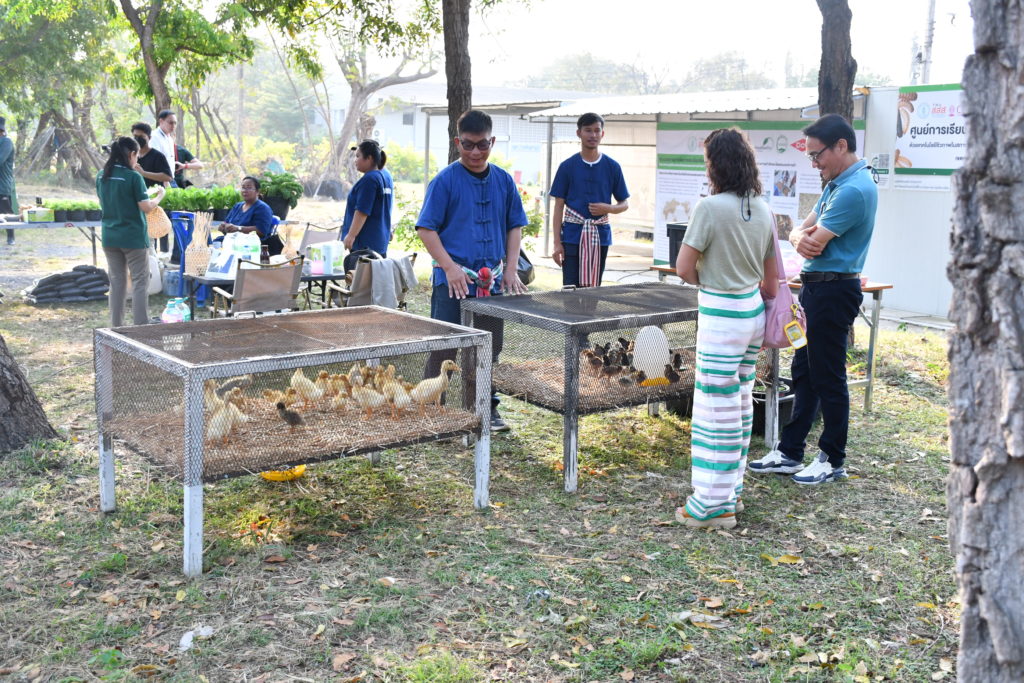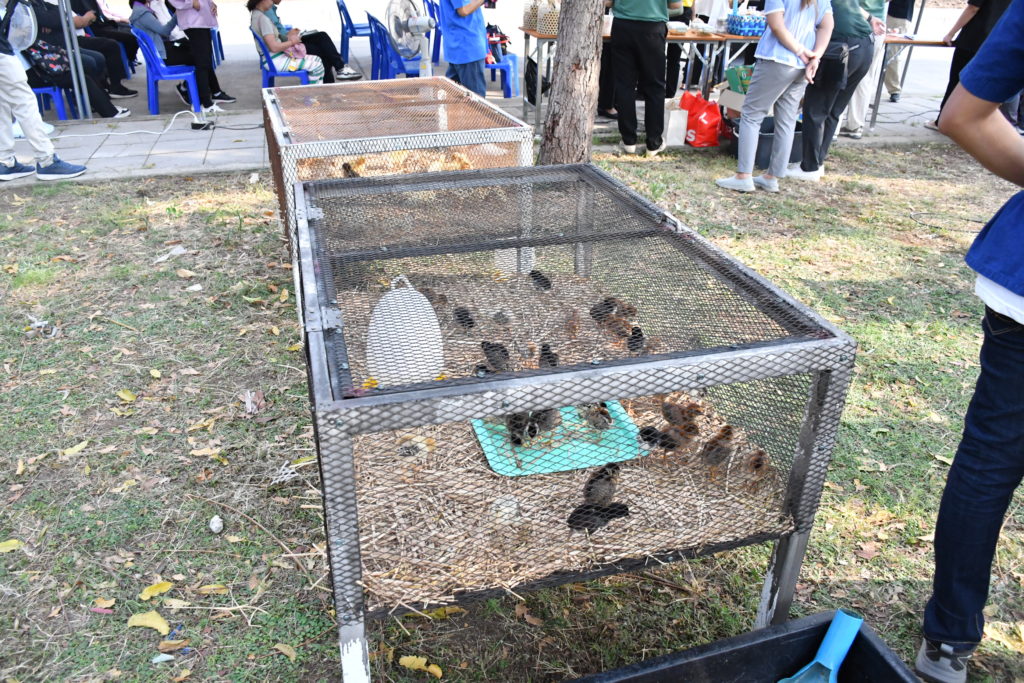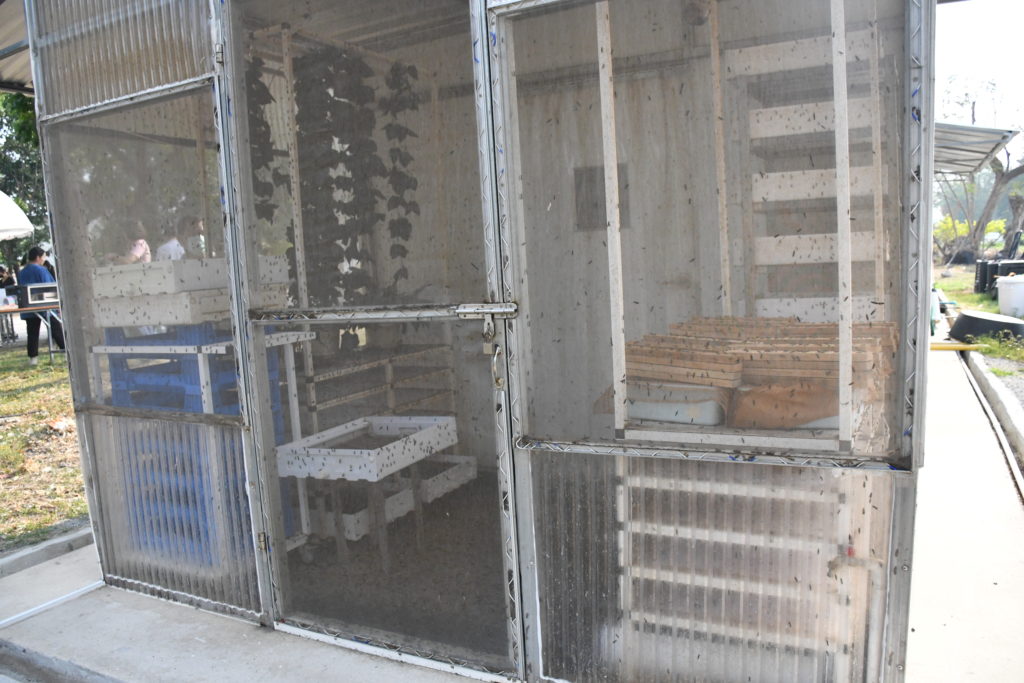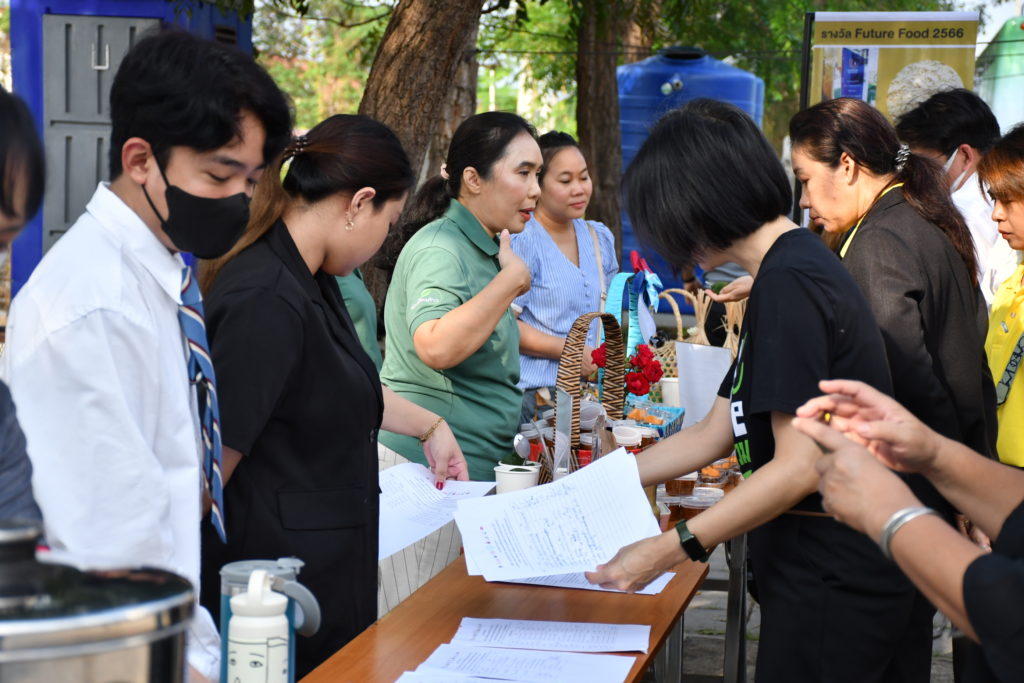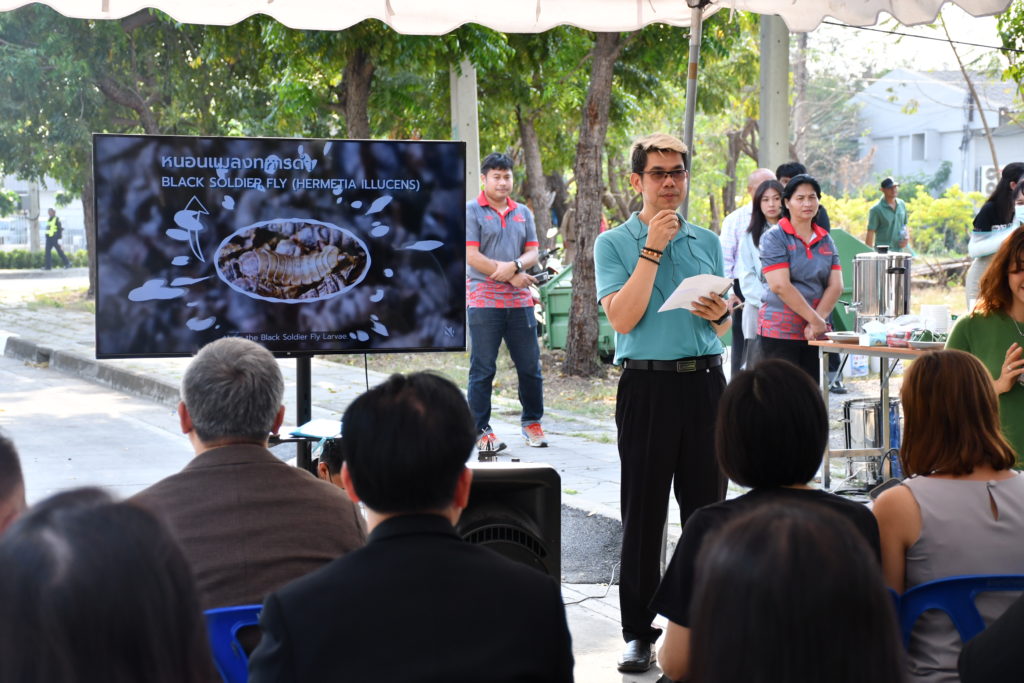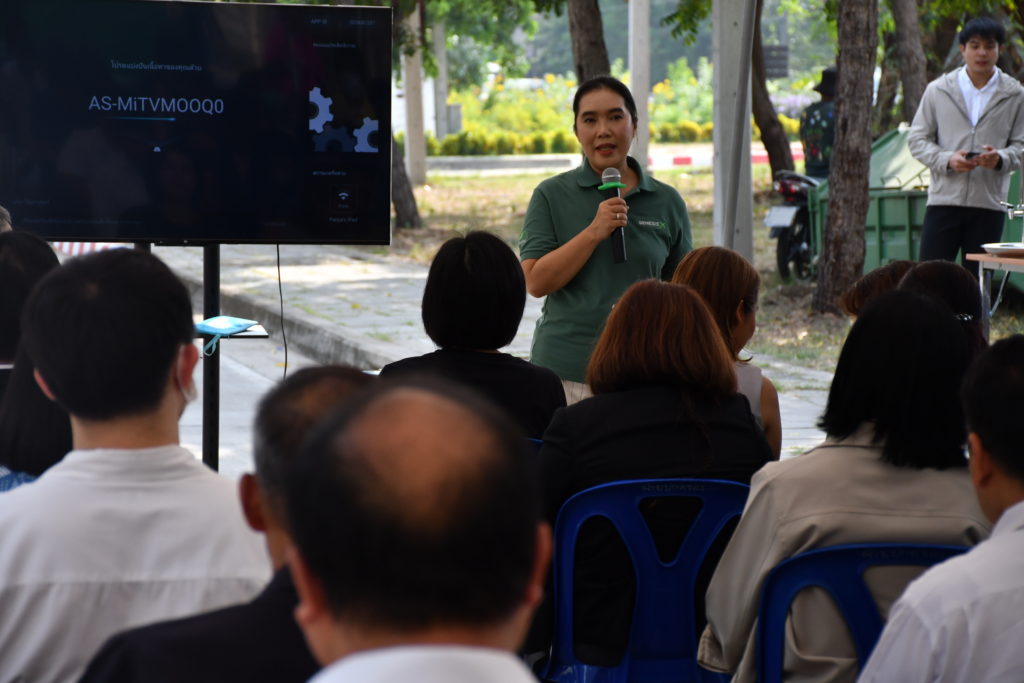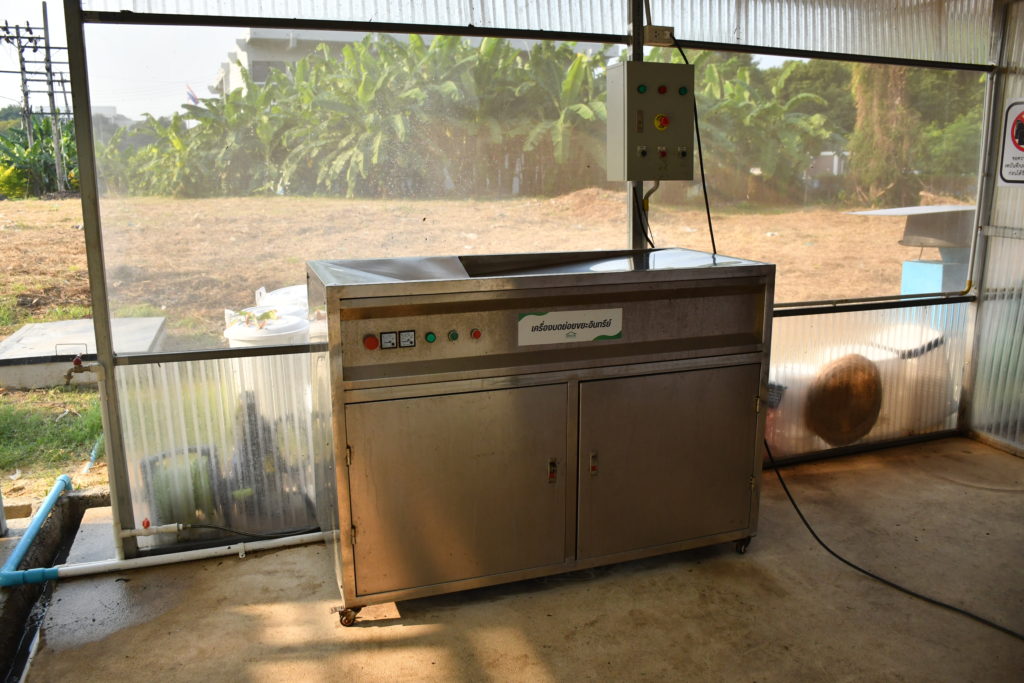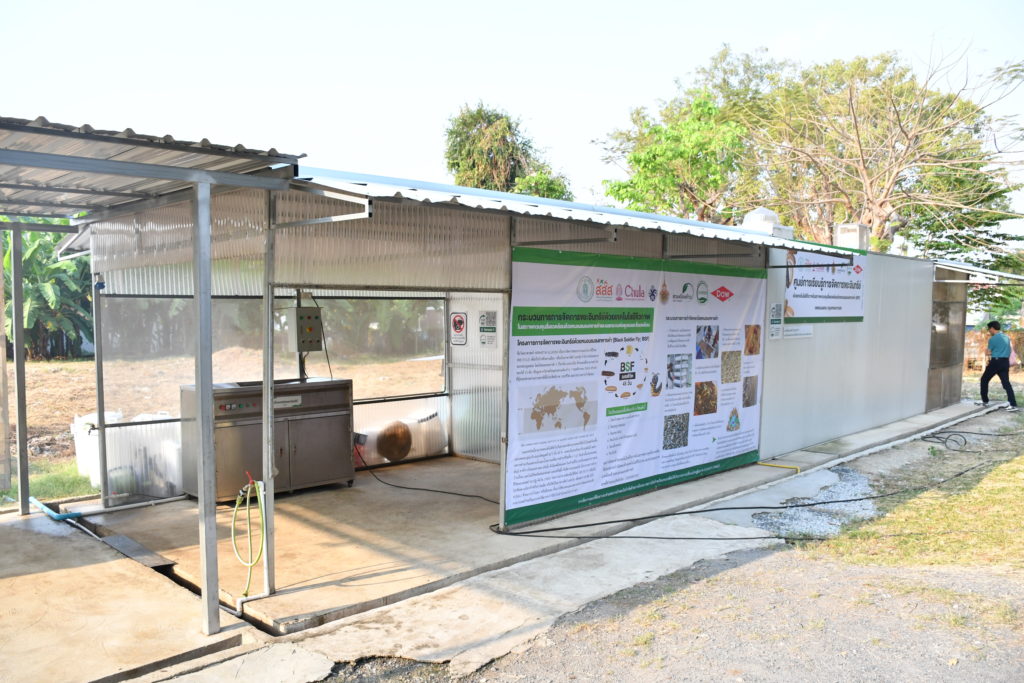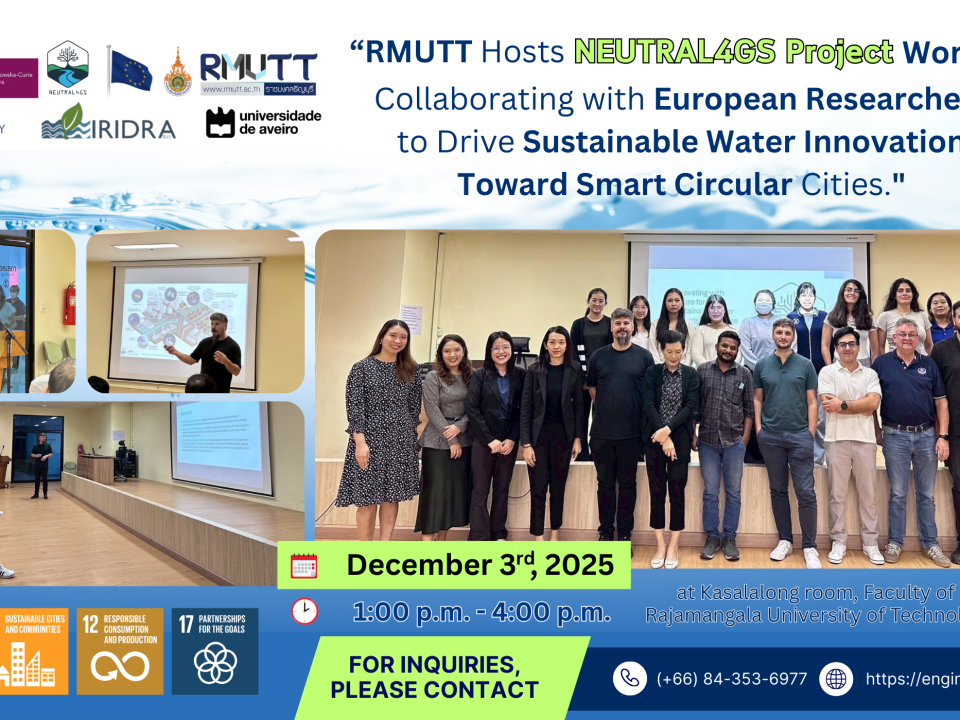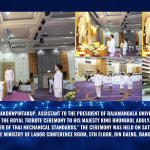
Ceremony to Pay Royal Tribute to the “Father of Thai Mechanical Standards”
04/03/2024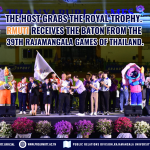
The host grabs the Royal Trophy. Rajamangala University of Technology Isan receives the baton from the 39th Rajamangala Games of Thailand.
06/03/2024Pilot project for sustainable waste management at the source in Bangkok: Case studies from Pathumwan, Phayathai, and Nong Khaem Districts. This collaboration includes Rajamangala University of Technology Thanyaburi (RMUTT), Bangkok Metropolitan Administration, Thai Health Promotion Foundation, Chulalongkorn University, Chula Environmental Research Institute, Suan Tung Kao, Genesys Company Limited, and Dow Chemical Company. They launched a learning center for organic waste management using black soldier fly (BSF) larvae. Dr. Chatiwut Kangwan, Director of the Bureau of Risk Factor Control Support, delivered the opening speech. Ms. Siri Janthabradang, administrator of Suan Tung Kao, and Ms. Sarinee Sethiathakul, executive of Genesys Company Limited, discussed managing organic waste using black soldier fly (BSF) larvae. Associate Professor Dr. Panya Minyong, Assistant Rector of RMUTT and Acting Director of the Academic Services Office, introduced the prototype BSF farm system and working processes at the Nong Khaem Solid Waste Disposal Center.
Ms. Sarinee Sethiathakul, executive of Genesys Company Limited, revealed that the process of managing organic waste with biotechnology in a controlled environment using black soldier fly larvae and its impact on communities and the environment involves reusing food waste to produce alternative protein sources or animal feed and fertilizer. This process significantly reduces the need for incineration or landfill, cutting greenhouse gas emissions by up to 47 times compared to composting. The organic waste decomposition capacity is highlighted by the fact that just 1 kg of black soldier fly eggs can produce larvae capable of decomposing 13 tons of waste, serving as efficient natural decomposers. The black soldier fly’s lifecycle and waste decomposition process are discussed. These insects are commonly found in nature in temperate regions between latitudes 40°S and 45°N, typically around shrubs. The black soldier fly only consumes water and nectar for a brief lifespan of 7-12 days before mating, laying eggs, and dying. Therefore, unlike house flies that hover around food waste in homes, and unlike stinging insects like wasps or bees, black soldier flies are safe and do not disrupt human life. “Associate Professor Dr. Panya Minyong, Assistant to the President of RMUTT, Thanyaburi, and Acting Director of the Office of Academic Services, who designed the greenhouse that eliminates waste using biotechnology under controlled environment conditions. The waste decomposition and elimination are managed using biotech technology and environmental control with black soldier fly larvae. He revealed that the challenge was the proximity to the community, necessitating consideration regarding the odor that might disturb the nearby residents. Therefore, the primary focus in the design was odor control. Temperature regulation to contain the smell was achieved by designing walls using 3-inch thick Isowall panels to construct the greenhouse. The greenhouse is divided into six zones:
- Food waste reception and unprocessed food zone
- Larvae nursery zone
- Breeding zone
- Flying insect zone for egg-laying
- Larvae rearing zone
- Fertilizer production zoneThe design has been patented.
The design has been patented.
Ms. Siri Chantapradang, the administrator of Garden Must Progress, added that the waste disposal process begins with the collection of food waste which is then ground to allow the larvae to maximize the waste reduction and minimize storage space. 2. Food waste is used for hatching larvae, taking 5 days (1 kg of eggs can manage up to 1.3 tons of waste through the complete cycle). 3. After the larvae hatch, they are raised for another 5 days to become fully grown larvae. 4. On the 10th day, the larvae can be used as pet food. Fully grown larvae are high in protein, fat, omega, dietary fiber, calcium, and lauric acid, making them suitable for feeding chickens, fish, birds, and various reptiles. 5. Around 10% of the larvae are separated for further breeding over 15 days to become pupae. 6. The larvae manure obtained is used as a fertilizer, which can reduce greenhouse gas emissions by up to 47 times more than composting methods. 7. After another 10 days, the pupae become adult insects that mate and lay eggs, entering the secondary waste disposal cycle. Such waste disposal processes, using black soldier fly larvae, are employed in several countries globally, such as Decatur-Macon County, Illinois, USA. Hence, the Thai Health Promotion Foundation (THPF) supports funding to expand the project to other provinces, such as Chiang Mai and Chonburi. For those interested or organizations wishing to visit the Organic Waste Management Learning Center using black soldier fly larvae (BSF), walk-in visits are welcome.
News photos and press release by : Public Relations Division Rajamangala University of Technology Thanyaburi
Photo news of the operation published at the media
https://www.talknewsonline.com/593023/
https://www.matichon.co.th/news-monitor/news_4452268
https://www.eduzones.com/2024/03/02/rmutt441/
http://ujunctionnews.com/archives/35722
http://bizofthai.com/archives/5840
https://skytimeonline.com/archives/4920
https://www.wannateller.com/archives/43165
http://www.vateekhao.com/2024/03/blog-post_42.html
http://www.stageonleader.com/2024/03/blog-post_28.html
http://www.leadershipway.net/2024/03/blog-post_3.html
http://www.leadertoday.net/2024/03/blog-post_84.html
https://www.dek-d.com/board/view/4105876
https://edu-today.com/rmutt-66/
https://learn-life.com/rmutt-69/
https://thaiedunews.net/rmutt-74/
